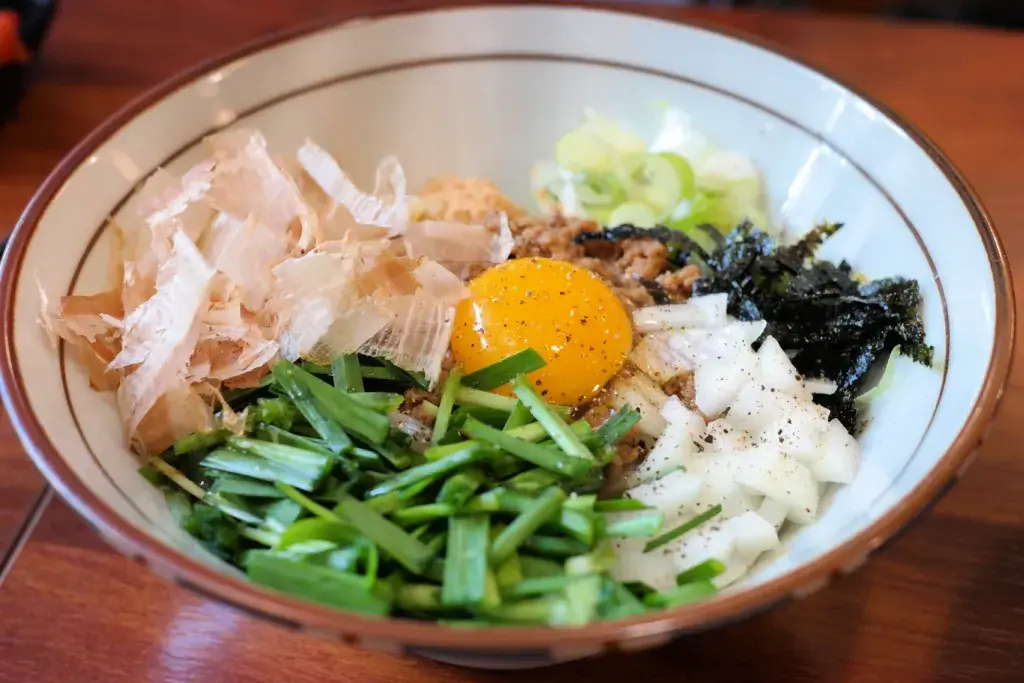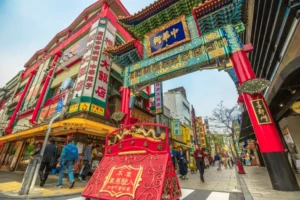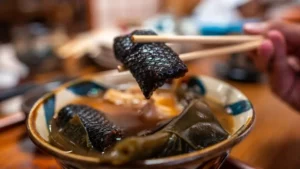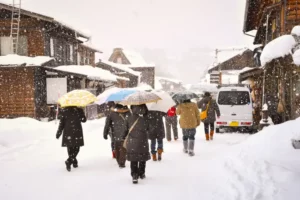Discover the world of maze soba, a soup-less noodle dish from Japan! Packed with delicious toppings and chewy noodles, this dish offers a unique take on ramen unlike any other! Let’s learn how to unleash your creativity and make this dish at home!
Table of Contents
ToggleWhat is maze soba?
Maze soba (pronounced “ma-zeh”), also known as Taiwan-style mixed noodles, is a soup-less ramen dish. Unlike traditional ramen, this dish uses thick, chewy noodles topped with a ground pork mixture and various toppings like green onions, garlic chives, minced garlic, and egg yolk. This dry-style noodle dish relies on the flavors of the pork mixture and toppings since there is no broth!
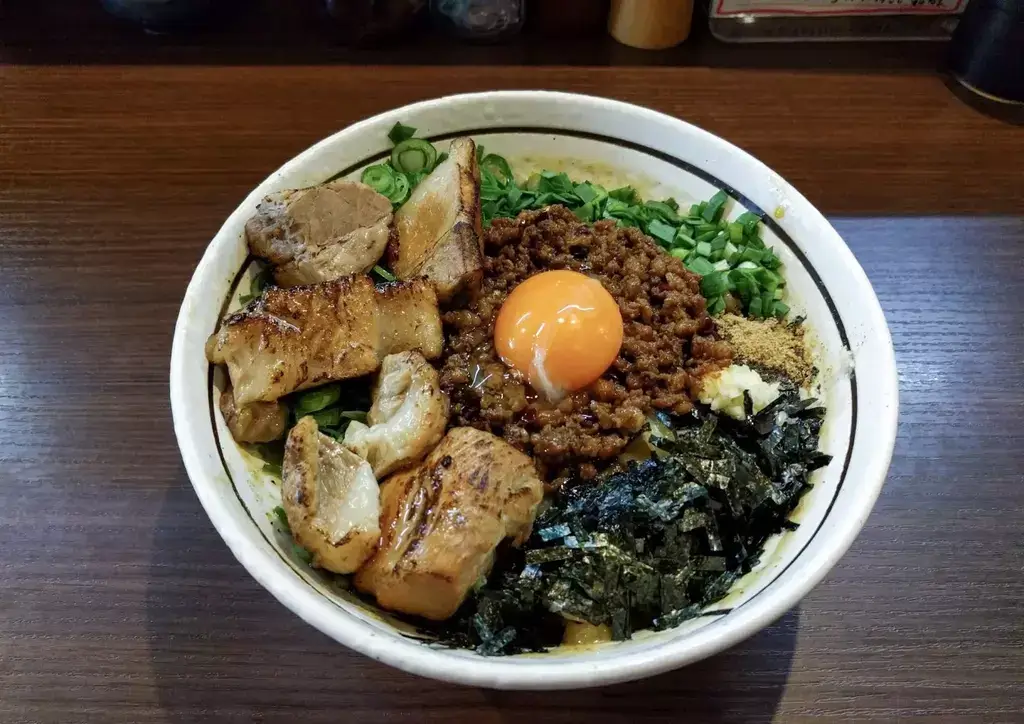
In Taiwan-style maze soba, the sauce is mixed into the noodles beforehand, providing a strong flavor. Ingredients include chili pepper, garlic, and spicy soy sauce-flavored minced meat. To enjoy the noodles, all ingredients must be mixed before eating, and rice is expected to be added to the remaining sauce and toppings after finishing the noodles.
Where did it come from?
Maze soba was created in 2008 in a noodle shop called Menya Hanabi in Nagoya when the owner tried to create Taiwan ramen, a local specialty. However, he struggled to make the soup broth to his liking. As he was about to discard the minced meat he had prepared, a part-time worker suggested serving it with boiled noodles. This led to experimentation and refinement, resulting in the creation of the soupless noodle dish!
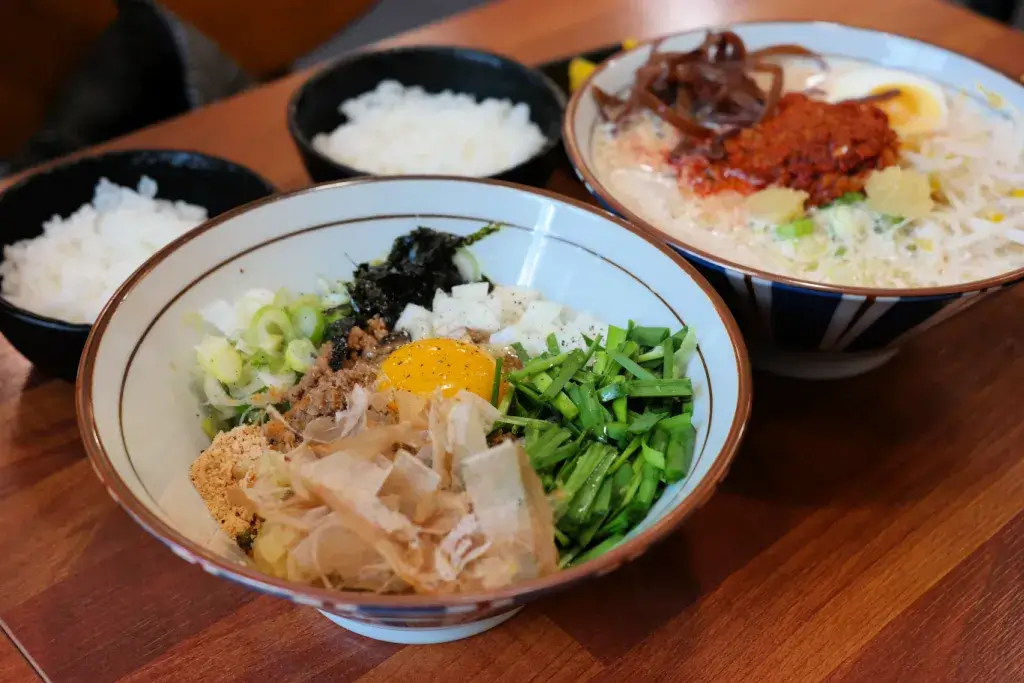
Since its creation, maze soba has become popular in Nagoya and Japan, with various restaurants adding unique twists. In 2013, it received the Runner-Up prize in the Nagoya Food Election and was honored by the then-mayor of Nagoya. In November 2021, the Japan-Taiwan Maze Soba Association (JTMA) was created to promote the spread of the dish.
What other types of soupless noodles are there?
There are three main ramen dishes without soup varieties: maze soba, mazemen, and abura soba. Mazemen refers to ramen without soup, allowing chefs to experiment with different flavors and toppings. Some examples include uni (sea urchin) or soft-shell crab. Abura soba has more straightforward toppings like pork belly chashu and is served with the sauce under the noodles, requiring mixing before eating.
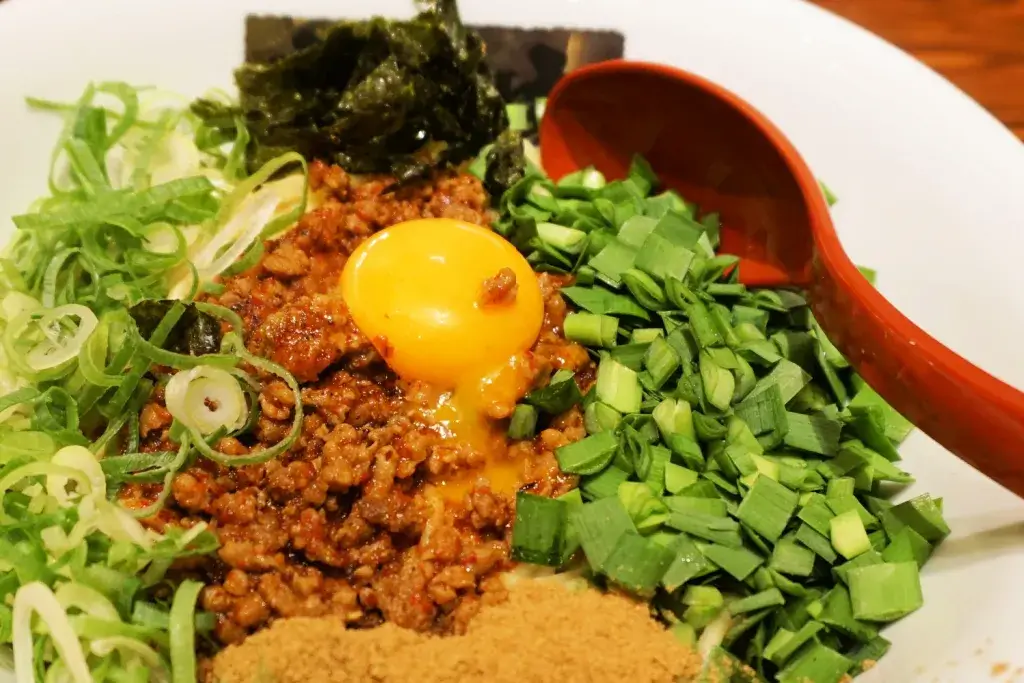
Maze soba is known for its intense flavors and varied toppings, such as chili pepper, garlic, and minced meat. Unlike abura soba, which mixes the sauce directly into the noodles from the start, it uses thicker noodles and encourages diners to eat quickly while the dish is hot to prevent clumping. Despite their differences, all three dishes offer a unique take on ramen, catering to diverse tastes and preferences!
Are you interested in amazing food like maze soba? Check out Sakuraco! Sakuraco delivers traditional Japanese snacks, teas, and sweets from local Japanese makers directly to your door.
Is it easy to make?
To make maze soba, you’ll need thick ramen noodles, ground pork, sesame oil, doubanjiang, soy sauce, and various aromatics and toppings like garlic, ginger, green onions, and nori seaweed. Cook the ground pork with seasonings until brown, and prepare the noodles according to package instructions. Build the dish by mixing the noodles with the pork mixture and toppings like nori seaweed, bonito flakes, and sous-vide egg yolk.
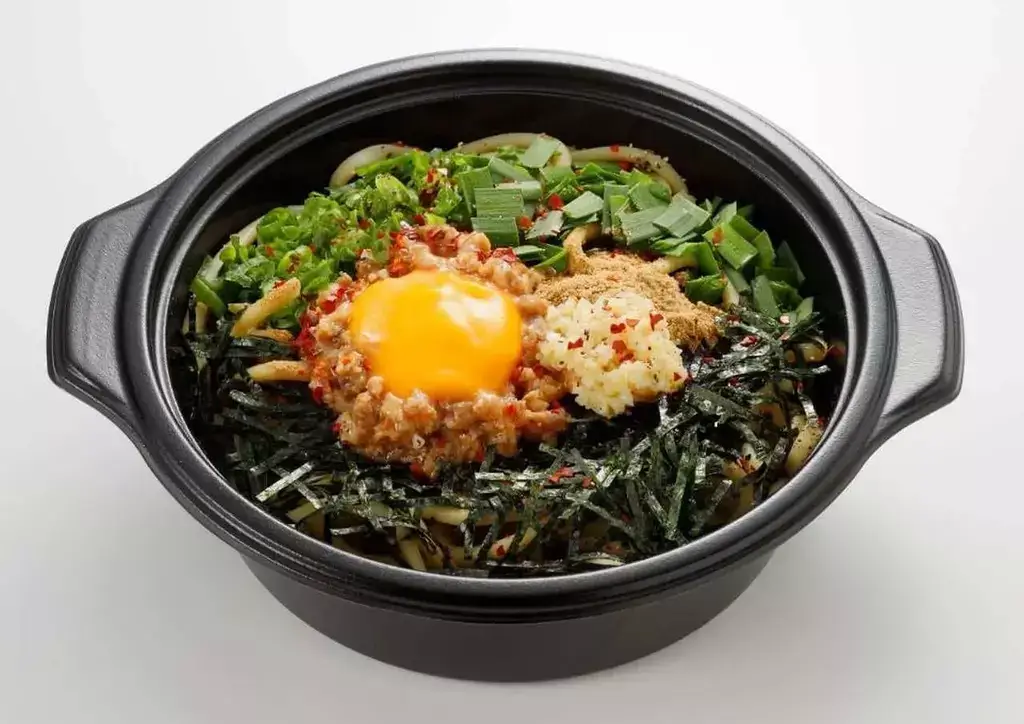
When serving, mix the noodles and toppings while still warm to prevent clumping. Enjoy your noodles immediately for the best taste and texture. You can add more spice and vinegar to change the dish’s flavor as you eat. Make sure you have a bowl of rice ready to finish off your meal! After you finish your noodles, pour the remaining pork and sauce over your rice and enjoy those last bites!
Why should I try maze soba?
You should try maze soba because it’s a unique experience different from traditional ramen. With its rich history rooted in Nagoya, Japan, the dish has a flavorful combination of thick, chewy noodles and a variety of toppings, including pork, egg, and green onions! Unlike traditional ramen dishes, it is served without broth, allowing its sauce and toppings to be the main attraction!
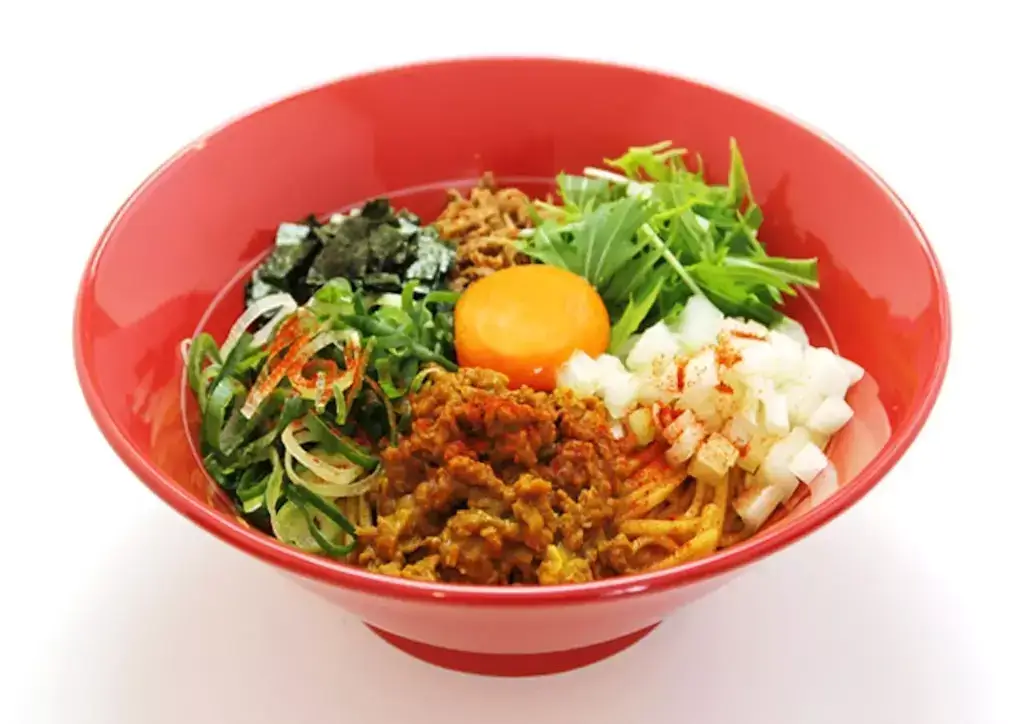
There are many different ways to eat this dish, making it perfect for adventurous foodies looking to explore new flavor combinations. Whether enjoyed as a quick and satisfying meal or shared with friends and family, the noodles will leave a lasting impression. So why wait? Dive into the world of maze soba today and discover the joy of this beloved ramen dish! Have you ever tried maze soba before? How did you find it? Let us know in the comments below!

